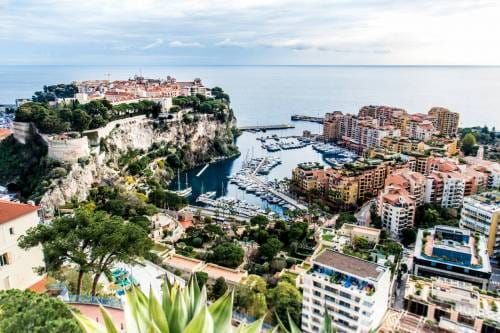In an effort to lead by example in e-governance, the Principality of Monaco has just inaugurated a new digital platform that allows residents to set up a sole proprietorship, known locally as an entreprise individuelle, entirely online. No more in-person visits or paper files: since September 25, 2025, all you need is your computer or smartphone.
This new service, available through the government’s official portal MonGuichet.mc, marks another milestone in Monaco’s drive to modernize its public administration. The platform lets users complete every stage of business creation, from submitting their initial application to receiving their final authorization, all without stepping into an office.
A New Chapter in Administrative Ease
Until now, establishing a sole proprietorship in Monaco meant making several visits to different government departments, often stretching the process over weeks. With the new online system, entrepreneurs can submit their registration and authorization applications digitally, monitor the status of their request in real time, and receive updates directly from the portal.
The service is available 24 hours a day, seven days a week, giving users freedom to handle their paperwork outside regular office hours, a major advantage for those already working full-time or managing multiple projects.
This initiative is not just about convenience; it represents a broader governmental ambition to improve user experience and reduce bureaucratic friction for both citizens and residents eager to start new ventures.
Behind the Scenes: Collaboration and Vision
The platform was developed through close collaboration between the Department of Economic Development (DDE) and the Interministerial Delegation for the Digital Transition (DITN). This partnership reflects Monaco’s cross-departmental approach to modernization and its ongoing commitment to digital transformation through the national “Extended Monaco” program.
That initiative, launched several years ago, has already brought more than eighty administrative services online , including car registration, residency formalities, and education procedures, all unified through MonGuichet.mc. The addition of business creation services shows how the Principality continues to build a cohesive, digital-first ecosystem.
According to the Prince’s Government, this move is also meant to strengthen Monaco’s economic attractiveness. By streamlining the process of setting up shop, officials hope to attract more independent professionals and small business activity to the region’s vibrant economy.
What Solopreneurs Should Know
If you’re thinking of launching a solo business in Monaco, here are the key points:
Name of Entity is called a sole proprietorship (in French, entreprise individuelle).
For Prerequisites you will need to provide identity documents, proof of address, and in some cases (especially for foreign nationals), a business permit may still be required.
As for Liability the owner has unlimited personal liability for all business obligations, meaning personal assets are not legally separate from the business.
Monaco offers very favorable tax conditions. There is no personal income tax for residents, though VAT applies. If the business earns more than 25% of its turnover outside Monaco, it may be subject to corporate tax.
Prior Approach: Previously, all applications had to be submitted in person to administrative offices, often requiring multiple visits. Now, every step can be done fully online through MonGuichet.mc. For questions or additional assistance, entrepreneurs can still contact the Monaco Business Office at +377 98 98 98 98.
A Digital Leap, with Challenges Ahead
As seamless as this new digital service appears, several challenges remain.
Some potential users may still feel uneasy about fully online administrative procedures, so clear instructions and user-friendly interfaces will be crucial. Additionally, while applications are submitted electronically, real-world verification steps, such as checking credentials or permits, will still take time.
Security is another priority. The government has emphasized that the platform follows strict data protection standards, ensuring confidentiality and integrity for sensitive business and personal information.
Finally, integration with existing systems such as tax and social service databases will determine how smoothly the new digital process operates end-to-end.
If the new platform delivers on its promise of speed, simplicity, and security, it may well become a reference point for other European microstates, proof that even the smallest nations can set the pace in digital governance.









